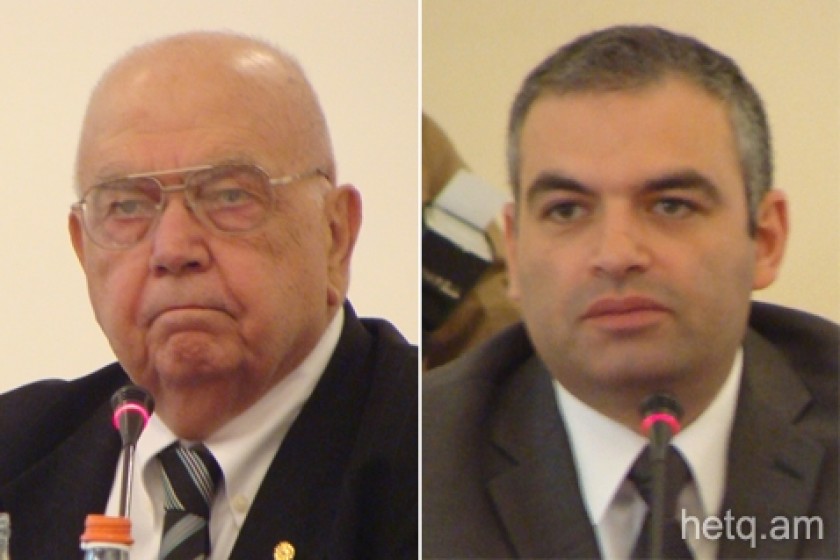
Richard Hovannisian: “The Turks are better prepared than us on the eve of the Genocide Centenary”
Today, at Yerevan’s Ani Plaza Hotel, an international conference billed as the “Armenian Genocide: Challenges of the Eve of the Centenary” got underway.
I will offer readers just a few insights as to what was said that can be deemed newsworthy.
The noted American-Armenian historian Richard Hovannisian had much to say of a critical nature regarding the approaches and activities so far implemented, both in Armenia and the diaspora, a mere two years before April 24, 2015.
He began his address on the subject of “Thoughts about Approaches to Commemorate the 100th Anniversary, by confessing that he was under the impression that the conference would be more a strategizing session than a compendium of scholars giving academic presentations.
I wonder who was guilty of the miscommunication the organizers of the conference. Perhaps the “State Commission to Coordinate Events Dedicated to the 100th Anniversary of the Genocide” didn’t clearly state what the purpose and content of the conference would be.
Nonetheless, Mr. Hovannisian clearly noted what he felt were the inadequacies, both organizational and in terms of orientation, of pan-Armenian efforts to commemorate the 100th anniversary of 1915 in a meaningful and influential manner.
The historian stressed the need for a new approach to the 2015 commemoration, arguing that the international community isn’t all that interested in hearing yet more scholarly dissertations on the Genocide and that Armenians must look to the arts and cultural fields as new avenues to present the reality of 1915 to peoples around the world.
He talked about the idea of forming a pan-Armenian philharmonic orchestra that could tour the world as a more attractive and effective way to commemorate the anniversary.
Hovannisian told the participants that Turkey has been gearing up for the anniversary and that, “The Turks are better prepared than us both in terms of finance and organization.”
The historian underscored the need for Armenians to prepare serious and substantive responses to the denialist claims that can be expected from the Turkish side. In this regard, he pointed to several such sources that Turkey, by taking them out of context, have used and will use to deny Armenian claims that a genocide took place.
He also minced no words regarding the woefully inadequate media preparation of the Armenian government, stating, “I feel ashamed when I look at the websites of various Armenian government agencies, especially in terms of the genocide and Armenian history.”
When I caught up with him during a conference coffee break and asked him to expound on his declared critique of government preparedness, he answered, “We come from different cultures, but I believe that a new generation of Armenian officials, having been exposed to the West, will rectify these shortcomings.”
During the question and answer period that followed Hovannisian and the other first panel speakers, Hayk Demoyan, who runs the Genocide Museum in Yerevan, acknowledged that a great deal of work still had to be done.
Nevertheless, he pointed to the achievements of the museum during his tenure and noted that the museum complex was currently being expanded.
Display space for permanent and temporary exhibitions will more than double, he noted, adding that a great deal of new material collected over the years could now be presented properly. A new annex will include a conference hall and classrooms for students and researchers.
The complex will be furnished with the latest in technical equipment to enhance the visualization on the genocide reality and its consequences.
Mr. Demoyan ended by noting the importance of establishing a pan-Armenian genocide school for the preparation and training of a new generation of genocide scholars, allowing for greater interaction and inter-disciplinary cooperation amongst academics.
The Genocide Museum director said what was vitally needed was a unified approach, of both Armenia and the diaspora, to the genocide issue, especially in regards to the pursuit of justice and compensation.
(Photo: Richard Hovannisian, Hayk Demoyan)
 Videos
Videos Photos
Photos




Write a comment